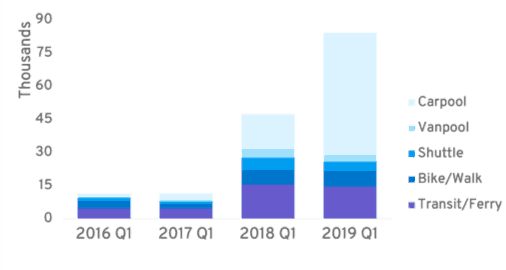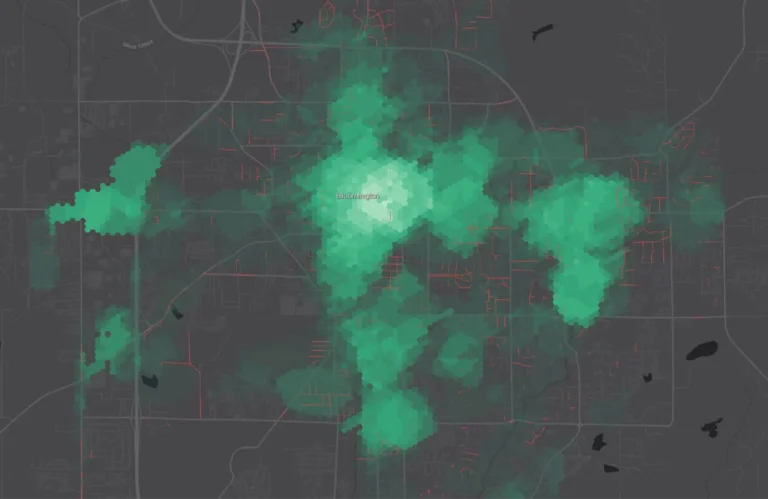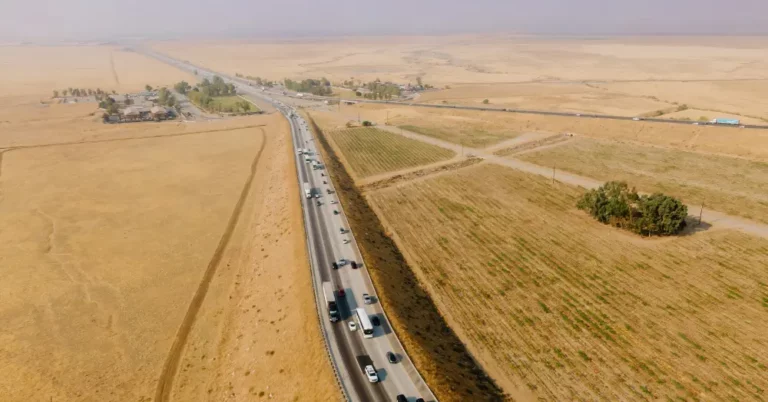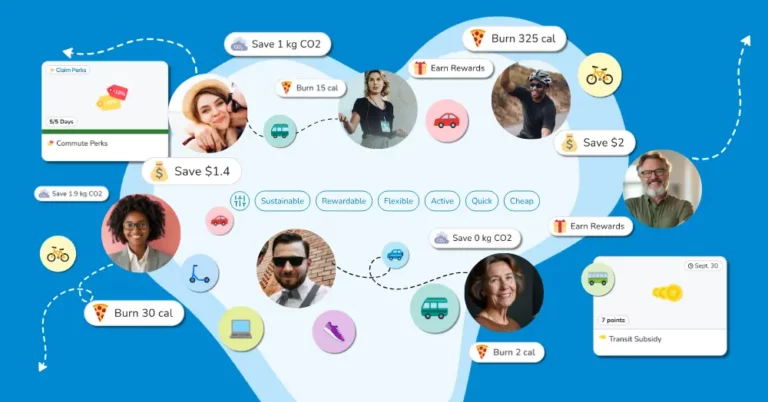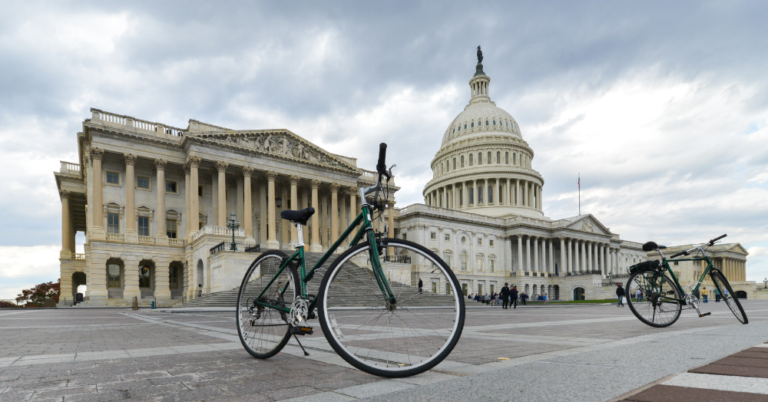Commute.org, San Mateo County’s agency for transportation demand management has a mission to improve air quality and reducing traffic congestion, particularly during peak commuting hours by helping commuters find alternatives to driving alone in this busy hub of business and innovation. A unique incentive program encouraged Bay Area commuters to take thousands of new carpool trips each month.
One important way in which Commute.org is working toward this goal is by implementing programs to increase the use of commuter carpooling for trips taken into or out of San Mateo County during peak periods.
In late 2018, the agency announced a new incentive for commuters in the region – for every ten days they carpooled to work, they could earn $25. To qualify, the trips had to be traditional carpools, i.e. two or more people per car where the driver is not reimbursed above the standard mileage reimbursement rate.
The Results
Over approximately 6 months, carpools logged in San Mateo County as part of the program more than quadrupled from 6,400 in September 2018 to well over 27,000 in April 2019.
As a result of the program, commuters logged many thousands more carpools in the first quarter of 2019 than in the same period last year, while existing improvements in mode shift held strong.
San Mateo Mode Split in Q1 2016-2019
When surveyed, 40% of participants reported that they were previously driving alone.
How They Did It
Incentives were managed based on trip logging in Commute.org’s STAR platform powered by RideAmigos CommuteHub. Carpoolers claimed $25 gift cards for every ten trips they logged during the campaign.
To ensure trips were legitimate, Commute.org required commuters to log them to their individual account on the platform using a choice of three approved mobile apps: Commute Tracker, Scoop or Waze Carpool. This provided Commute.org with confidence in the validity of the carpool trips and reliable reporting to ensure that their investments were paying off.
“Since we launched the incentive, the program has seen an unprecedented increase in participation and media attention.”
–- Kim Comstock, Commuter Programs Manager
Incentives work as extrinsic motivators for behavior change, and the larger the incentive, the better it works. Of course, it is not helpful to simply pay someone to do something for a period of time if they’ll stop once the incentive is gone, or if you might run the risk of undermining any intrinsic motivation.
This program tackled both issues well. First, the carpool incentive is not limited to just one $25 reward, but instead allows commuters to earn the reward up to four times, equal to 40 days of carpooling. This helps commuters go from trying a new commute to forming a new habit, which has been shown to take between 21 days and 66 days. Second, Commute.org also offers ongoing incentives beyond this specialized carpool program to encourage commuters to stay engaged and continue their new habits.
About Commute.org
Commute.org is public agency whose mission is to reduce the number of drive alone vehicles traveling to, from or through San Mateo County. Its goal is to help residents and commuters find alternatives to driving alone that are less stressful, less costly and better for the environment.
The agency provides information and commute planning assistance to employees, employer programs, and city TDM partnerships. Visit commute.org.
Learn More
RideAmigos is proud to partner with Commute.org to power the STAR platform with its easy-to-use trip planning, commute logging, reporting, and programs based on behavioral science. If you’d like to learn more about replicating results like these, get started today by talking to us about your commuter programs and goals.



